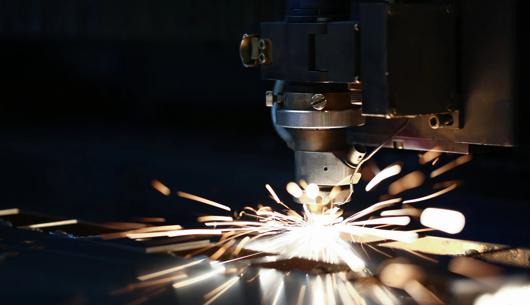Following on from last year’s horizon scanning, the construction industry has encountered unprecedented growth in the use of Artificial Intelligence (AI) technologies to fulfil projects. Looking ahead, the incorporation of Artificial Intelligence is clearly going to become even more prevalent in the market in 2025.
The move towards a more digitally enhanced industry is becoming more topical as time moves forward. Whilst the industry is navigating the various advancing technological changes, stakeholders need to be aware of any legal risks that might arise as Artificial Intelligence starts or continues to be embedded into construction projects.
Over the last year, there has been a substantial increase in demand for the creation and development of data centres, to host the exponential growth of data being created across various platforms. The delivery of such large projects poses a number of challenges. The use of 3D models in construction projects may be economical but poses challenges, for example in relation to litigation. Moving forward into 2025, it will be interesting to see the growth in Artificial Intelligence powered tools theoretically making sites safer and more energy efficient, as well as how the industry continues to utilise artificial intelligence in other ways to further the construction industry.
Increasing demand for data centres
The rise of artificial intelligence over the last few years has led to an exponential growth in the need for, and the development and creation of data centres.
At present, data centres worldwide consume around 1 - 2% of overall power, however with the growth in applications such as agentic chatbots, image generation tools, autonomous vehicles and smart manufacturing tools this is likely to double or even triple over the next five to ten years.
It has become ever more vital that businesses ensure that data centres are built with advanced infrastructure and energy solutions to combat the vast amount of data that will be generated in the future.
Liability for artificial intelligence
With the rise of artificial intelligence and its uses within the construction industry, it is becoming ever more important to ensure that contracts are drafted with clear liability clauses. This is needed to address possible issues arising between the manufacturer and the company itself in cases of errors, accidents, or failures. In this instance, the contract needs to be clear in determining the roles, obligations, and responsibilities among those involved in regards to the use of artificial intelligence tools in the project.
For example, the construction industry is using advanced technologies such as building information modelling (which has been around for some time and is now becoming standard practice), as this not only improves efficiency and reduces waste, but it also enhances cross collaboration throughout the supply chain.
3D models or simulations created for construction projects using this technology, particularly if artificial intelligence is involved, will need to contain clear terms as to which entity assumes liability for any errors, accidents, or failures.
Intellectual property implications
The implementation of artificial intelligence in construction projects is becoming more prevalent and it is crucial that contracts are clear as to which entity will own the intellectual property rights of material generated by artificial intelligence, both before the project has commenced and whilst/after the project has finalised.
Artificial intelligence powered design tools
The increase in artificial intelligence powered design tools is having a significant impact on infrastructure and construction projects by improving efficiency, safety, and decision-making throughout the planning, construction, and maintenance stages. Furthermore, such tools can assist in streamlining the complexities of infrastructure projects, making them more cost-effective, sustainable, and adaptable to future challenges.
Some examples of how artificial intelligence powered design tools are assisting with projects are set out below:
1. Project planning
With the use of Artificial Intelligence tools, vast amounts of data is used to assist with optimising the planning and design of infrastructure projects. Machine learning algorithms continue to assist engineers and architects identify the best designs based on factors such as environmental conditions, traffic patterns, and cost efficiency. Artificial Intelligence is also automating the creation of 3D models and simulations, to allow for a more accurate visualisation and better-informed decision-making.
2. Traffic management
Artificial Intelligence is increasingly being used in smart city infrastructure, particular for traffic management. Artificial Intelligence can analyse traffic flow data from sensors, cameras, and GPS to optimise traffic signals, reduce congestion, and improve the efficiency of transportation networks. It can be used to aid in the planning of new roads, intersections, or public transport routes.
3. Construction automation
Within infrastructure construction, Artificial Intelligence is driving the use of autonomous machinery, such as drones, robotic excavators, and self-driving trucks. These machines can in theory work around the clock with little to no human intervention, which in turn speeds up construction timelines, improves accuracy, and enhances working safety.
4. Risk assessment and safety
Artificial Intelligence tools are and will continue to play a vital part in identifying and assessing the risks on projects by combining previous data, environmental factors, and real time conditions.
To ensure that Artificial Intelligence design tools are being used to their full potential, effective data management systems are required. In addition ethical and legal considerations must be taken into account (for example with reference to the liability point noted above), to identify any potential risks with using the tools (system failures, delays or cost overruns) and to ensure that the correct education/ training is given to those who will use the technology.
Artificial intelligence and the construction industry summary
The construction industry is facing unprecedented times with the fast-paced growth of artificial intelligence and the above is only a snapshot of a number of elements which will continue to affect the industry in 2025. Ensuring awareness around artificial intelligence's involvement in the industry, both its potential and its risks, will enable businesses to thrive and harness its growth potential.
Key contact

Tim Claremont
Partner
tim.claremont@brownejacobson.com
+44 (0)20 7871 8507







































